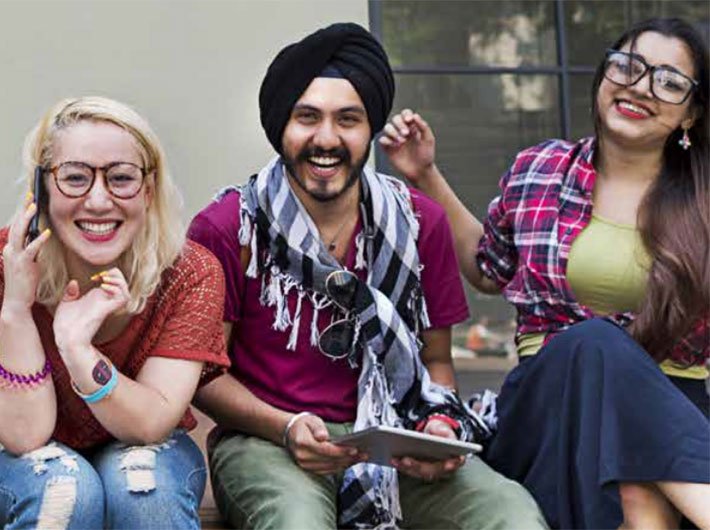94% of Indian young people said that education was the factor that made them hopeful for the future
Indian young people were second most likely to say they are ‘very happy’ with their lives in an international poll. Twenty nine percent said they were very happy with their lives and 51% said they were happy. Just 5% said they were unhappy and 3% said they were very unhappy, said Varkey Foundation’s what the world’s young people think and feel - Global Citizenship Survey.
The survey showed that Indian young people were the second most hopeful about the world of any country polled. As many as 49% of respondents think the world is becoming better, compared to just 18% who think it is becoming worse. 31% think it is becoming neither better nor worse.
Read: "Youth will usher in a new India by 2020-30"
A staggering 94% of Indian young people said that education was the factor that made them hopeful for the future – the second-highest percentage of any other country polled.
Read: Education in India: Status check
The Varkey Foundation commissioned Populus, a research and strategy consultancy, to carry out research on a global scale into the attitudes of 15- to 21-year-olds on a variety of ethical, personal, community and political issues. They chose 20 countries to poll: Argentina, Australia, Brazil, Canada, China, France, Germany, India, Indonesia, Israel, Italy, Japan, New Zealand, Nigeria, Russia, South Africa, South Korea, Turkey, the UK and the US.
The survey report said that with all the stories about the pressures and anxieties faced by young people, in-depth questions were asked about their wellbeing. When asked, simply, whether they would describe themselves as happy, nearly seven out of ten (68%) did so. There was, however, large variation between countries. Surprisingly, the highest happiness levels tended to be in developing countries such as Indonesia (90%), Nigeria (78%) and India (72%), and were lowest in advanced economies such as France (57%), Australia (56%) and the UK (57%).
Young people tended to get less happy as they passed through to early adulthood and young women were less likely to say they were happy (56%) than young men (62%).
What emerges from this wide-ranging survey is cause for optimism about the attitudes and opinions of the generation that will shape the next few decades. While retrograde populist movements focus on the differences between races, groups or populations, young people across the world share many progressive, outward-facing views. That teenagers in India, China and the USA can agree on a surprising number of political and personal issues should be a cause for celebration.
On more specific issues of personal morality, young people worldwide reveal themselves to be supporters of diversity, equality and liberal values across the world – even when those values run contrary to the laws of their country. Nearly two-thirds of young people believe that same-sex marriage should be legal (63%). (In India and South Korea around half of young people support same-sex marriage despite the fact that it is currently illegal in those countries.) On gender equality, the world’s young people are also surprisingly unified. Nine in ten (89%) young people believe men and women should be treated equally.
The pace at which attitudes are changing is extraordinary. Three-quarters of young people in the 20 countries surveyed believe that transgender people should have the same rights as non-transgender people (74%).
Read: Rights of transgender: Let me be ‘me’
The research also challenges the assumption that the world can be divided into ‘conservative’ developing countries, where religion plays a large role, and more liberal developed countries. For instance, support for equal rights for transgender people is higher in India (79%) than it is in France (71%), and almost as high as in Canada (83%), New Zealand (80%) and the UK (80%).
Read: Varkey Foundation’s what the world’s young people think and feel - Global Citizenship Survey
